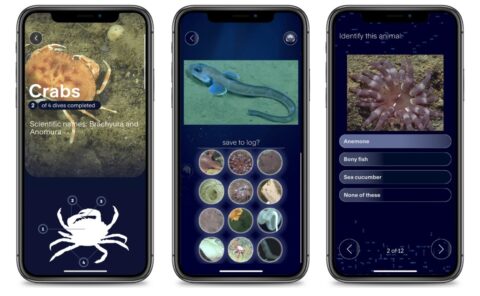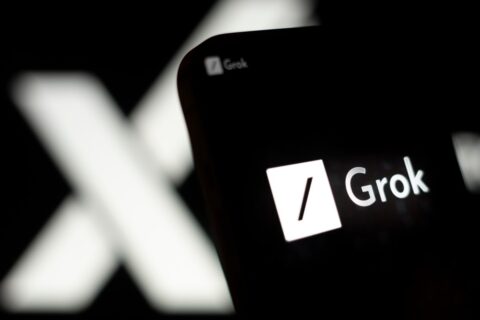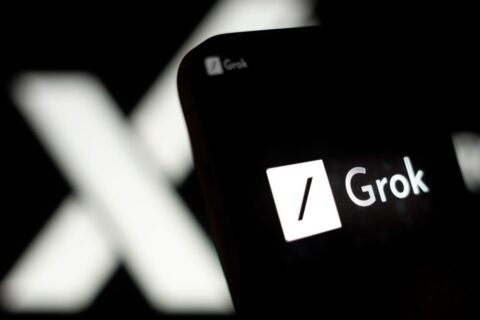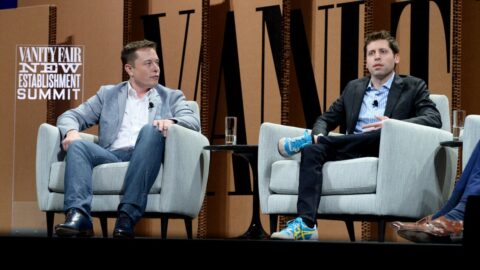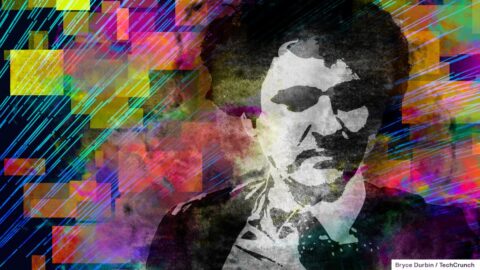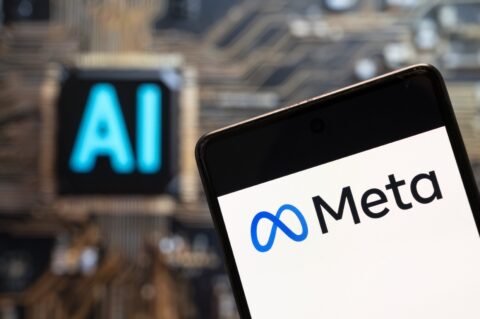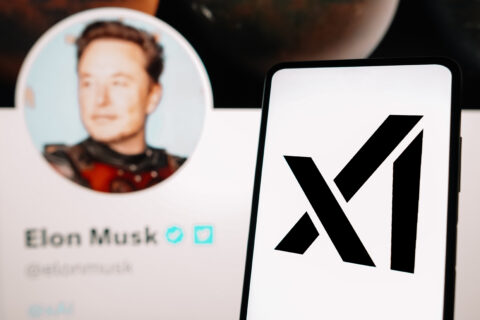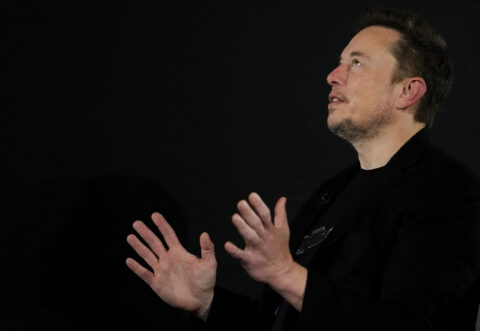Elon Musk is looking to raise 1/44 of a Twitter for his AI company, xAI. In other words, the man behind Tesla, SpaceX and X is seeking $1 […]
This week in AI: The OpenAI debacle shows the perils of going commercial
Keeping up with an industry as fast-moving as AI is a tall order. So until an AI can do it for you, here’s a handy roundup of recent stories in […]
Elon Musk says xAI’s chatbot ‘Grok’ will launch to X Premium+ subscribers next week
Shortly after screenshots emerged showing xAI’s chatbot Grok appearing on X’s web app, X owner Elon Musk confirmed that Grok would be available to all of the company’s […]
Elon Musk announced support for OpenAI firing Sam Altman. Here’s why.
Sam Altman is gone from OpenAI, and Elon Musk isn’t too distraught over it.
AI makes you worse at what you’re good at
Welcome to Startups Weekly. Sign up here to get it in your inbox every Friday. If you’ve been following along with this newsletter, you’ll have noticed that I’ve […]
Political ads on Facebook, Instagram required to disclose use of AI
Meta has introduced a set of AI rules for political advertisers on Facebook and Instagram.

OpenAI just announced its latest large language model (LLM), GPT-4 Turbo. Elon Musk’s xAI recently unveiled its own AI chatbot, Grok. And Samsung is jumping on the bandwagon, too, with its LLM, Gauss. On top of all this, AI-powered video and image generators are continuing to evolve. With artificial intelligence creating more and more content on the web, some social media platforms want users to know when media is created or altered by AI.
The latest company to step in with a set of policies around AI-created content is Meta, the parent company of Facebook and Instagram. And its new set of rules sets a standard on its platforms, specifically for political advertisers.
In a blog post on Wednesday, Meta stated it has a new policy that will force political advertisers to disclose when a Facebook or Instagram ad has been “digitally created or altered, including through the use of AI.” This includes “any photorealistic image or video, or realistic sounding audio, that was digitally created or altered.” The policy will pertain to all social issues, electoral, or political advertisements.
According to Meta’s new policy, a disclosure on an ad will be required when the advert depicts a real, existing person “saying or doing something they did not say or do.” Furthermore, if an ad contains a fictional yet realistic-looking person, it too must include a disclosure. The same goes for any political ad that uses manufactured footage of a realistic event or manipulates footage of a real event that happened.
There are some uses of AI or digital manipulation that will not require disclosures, Meta says. But these are only for uses that are “inconsequential or immaterial to the claim, assertion, or issue raised in the ad.” Meta provides examples of these exceptions, such as image size adjusting, cropping an image, color correction, and image sharpening. The company also reiterates that any digital manipulation utilizing any of those examples that does change the claims or issues in the ad would need to be disclosed.
And, of course, these AI-created or altered ads are all still subject to Facebook and Instagram’s rules around deceptive or dangerous content. The company’s fact-checking partners can still rate these ads for misinformation or deceptive content.
AI will be a more prominent factor in next year’s coming elections, such as the 2024 U.S. Presidential election, than it ever has been before. Even Meta now has its own large language model as well as an AI chatbot product. As these technologies continue to evolve, readers can be sure more online companies are going to produce a set of corporate or platform standards. With those elections on the horizon, Meta seems to be setting the ground rules for political ads now.
Meta’s new AI policy will roll out officially in 2024 and will pertain to advertisers around the globe.
What does Grok, the name of xAI’s chatbot, mean?
Elon Musk’s new xAI chatbot is called Grok and will be available to X Premium+ subscribers. Here’s what the name means.

I guess there aren’t enough technical hurdles to clear at the company formerly known as Twitter because, today, CEO Elon Musk announced the platform would soon be getting an AI assistant courtesy of his company xAI.
Musk says, “In some important respects, it is the best [AI assistant] that currently exists,” which isn’t saying much. In some respects, I could be a pop star (great hair, okay singing voice), but that doesn’t mean that I am one.
What is Grok?
Anyways, the AI is called Grok, which is a verb that essentially means to read the room. Oxford Languages describes it as the ability to “understand (something) intuitively or by empathy.” It’s an interesting name to give an AI, considering that intuition is based on verbal, physiological, and auditory cues that can be hard to articulate to another human, let alone a machine.
The name dovetails with Musk’s obsession with sci-fi, having originated in Robert Heinlein’s 1961 book “Stranger in a Strange Land.” The story follows a human named Valentine Michael Smith, who is raised by Martians and goes to Earth to understand its culture.
In the book, “grok” is a word in the Martian language (notably not understood by humans) that means “to drink,” though it has expanded to “meant to take something in so thoroughly that it becomes part of you.”
Given this definition, xAI’s Grok may hope to “drink” as much information as possible from the internet, X, and its interactions with programmers and regular people to achieve its understanding of humanity.
Grok is not available to the public yet, but when it is, it’s going to cost you. Musk says Grok will only be accessible to subscribers of X Premium+, which can be purchased for “just $16/month via web.” By comparison, ChatGPT’s subscription plan, ChatGPT Plus, costs $20 a month, but a free version of the chatbot is also available to all.
Elon Musk gives more details on xAI’s first product
Elon Musk gives more details on xAI’s Grok chatbot.

Elon Musk’s first AI product is here, and it’s a chatbot called Grok — not to be confused with rizzed-up Baby Gronk.
Musk shared the title of xAI’s first product on X (formerly Twitter) last night, along with some more details about its rollout. He announced that it will be available to all X Premium+ subscribers as soon as it’s out of “early beta.” He previously shared that xAI would release its first product to a select group of users today (Nov. 4).
Musk launched xAI, his artificial intelligence company, in July 2023, and it’s made up of AI experts who have previously worked at companies such as DeepMind, OpenAI, Google, Microsoft, and Tesla, as well as the University of Toronto.
He posted a screenshot of the chatbot responding to the question, “Tell me how to make cocaine, step by step.” Musk captioned the screenshot with, “xAI’s Grok system is designed to have a little humor in its responses.” He said, “it’s also based and loves sarcasm.” The question is a joke, and therefore it’s unhelpful for understanding how the chatbot would respond to more serious questions.
Musk doubled down on his claim that “it’s the best that currently exists.” He said that Grok’s real-time access to information on X is a “major advantage over other models.”
Musk says Twitter subscribers will get early access to xAI’s chatbot, Grok
Elon Musk’s AI startup, xAI, is creating its own version of ChatGPT. That appears to be the case, at least, from Musk’s tweets on X late Friday evening […]

